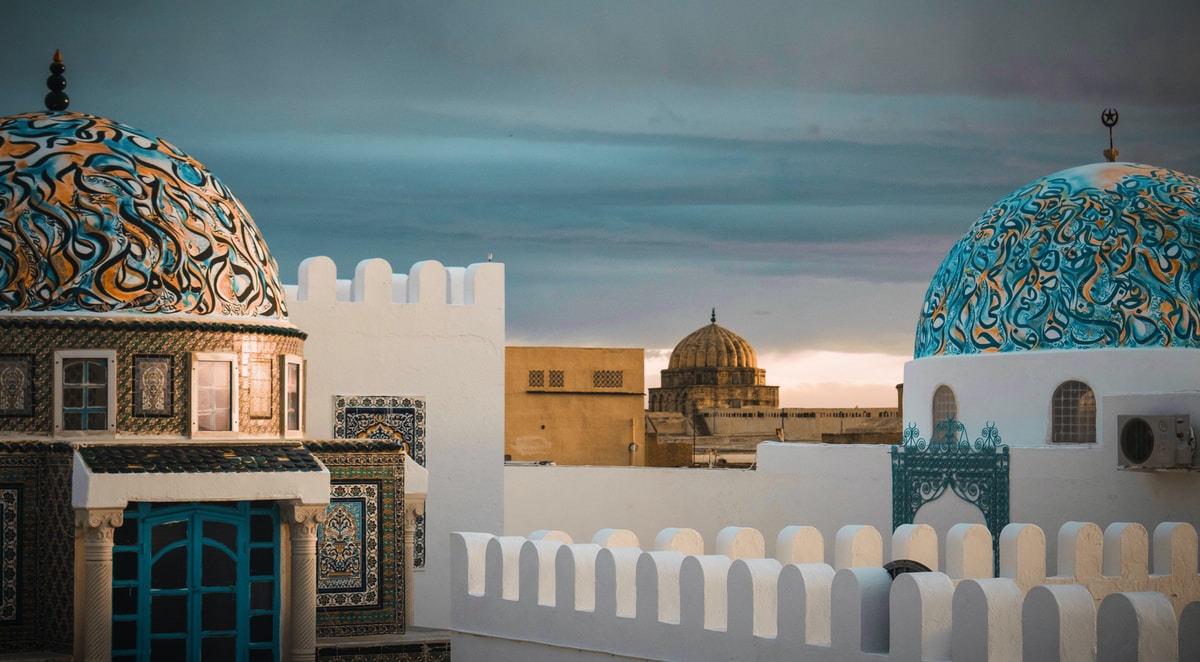There are tons of reasons why you should make Tunisia your next destination — sandy beaches and picturesque coastal villages, friendly locals and vibrant towns, and world-class museums are just a few of the attractions that Tunisia offers to tourists.
Solo travelers will find plenty of opportunities to socialize with locals and fellow globe trotters and hundreds of colorful markets (called souk) to fill their bags with souvenirs for friends and family back home.
Moreover, traveling to Tunisia is about to become a lot easier than the new online visa that the Government will launch later this year. As a result, the Tunisia entry requirements are straightforward to meet, and in just a few clicks, you’ll have obtained your travel permit to enter the country.
If you’re a woman traveling alone, however, you may be wondering about safety. Even though you enjoy your me-time and are confident when planning your trip, countries that are far away from home and seem to have a very different culture from your own may make you second-guess your decision.
Fear not because, in this article, you’ll find essential information on safety for female tourists in Tunisia, problematic areas to keep off of your itinerary, and safety tips for enjoying your holiday with peace of mind.
Key Facts on Tunisia’s Safety for Female Visitors
You may have heard that countries like the United Kingdom had enforced a travel ban for Tunisia in 2015 due to safety concerns. The situation has since improved dramatically, and the UK lifted the ban in 2017.
That same year, the Tunisian Government passed a new law that amended Article 277 in the country’s criminal code. The new legislation criminalizes all violence and discrimination against women, including marital rape.
The U.S. Department of State Overseas Security Advisory Council (OSAC) published a report assessing crime in Tunisia in 2020. The report found that popular locations like Tunis represent a low threat of violent crime towards foreigners (and U.S. nationals in particular.)
As in most tourist areas, most crimes committed against foreign visitors are crimes of opportunity like pickpocketing and petty theft. These are not directed at female travelers in particular, but rather at visitors who wear expensive clothes/jewelry/gear and become attractive targets.
You’ll find tips on how to protect yourself against these incidents further down in this article.
Tunisian Areas at Higher Risk for Women
In general, harassment is more common in rural and remote areas. However, this doesn’t mean that you shouldn’t visit small villages and explore beautiful Tunisian nature. Simply consider joining a group or a guided tour and avoid remaining alone, especially at night. Although there’s no dress code for women in Tunisia, dressing more conservatively can be a good idea when visiting rural destinations.
Public transport across the country presents a higher risk of petty crime and sexual harassment. Like in most big cities around the world, this is particularly true in Tunis’ Metro. Sitting next to other women may help you minimize risks.
In general, the U.S. travel advisory suggests that visitors of all genders avoid the following areas when deciding on their Tunisian itinerary:
- The area within 30 km of southeastern Tunisia along the border with Libya
- Mountainous regions of the country’s west, including the Chaambi Mountain National Park area
- The desert south of Ramada
- Jendouba south of Ain Draheim and west of P17, El Kef, and Kasserine, next to the Algerian border
- Sidi Bou Zid in central Tunisia
This is due to military zones and general safety concerns that are not specific to women. As you can see, the above are not popular tourist locations.
Top Safety Tips for Women Traveling to Tunisia
Tunisian women enjoy freedoms and rights that their counterparts in other countries in the region don’t. However, Western visitors may still find themselves be the center of unwanted attention at times. They may find local customs and traditions more conservative than those they’re accustomed to in their home country.
The following safety tips for women will make your female solo trip to Tunisia more relaxed:
- Dress more modestly than you would in a Western country, especially around religious sites and rural areas. Sunglasses are a great way to avoid eye contact.
- Cheap hostels, bars, and nightclubs (especially in the medina) are best avoided.
- LGBTQ+ travelers of all genders should keep public displays of affection to a minimum
- Do not express negative opinions about local customs and laws
- Be polite but firm in your response to invitations and requests from local men. La shukran means ‘no, thanks’ in Arabic but if the would-be harasser is insisting, try harem alek (‘shame on you’), which tends to work quite well
- Try joining local tours and group day trips to meet fellow travelers and feel safer
- Do not flash expensive items like jewelry and camera gear in public

